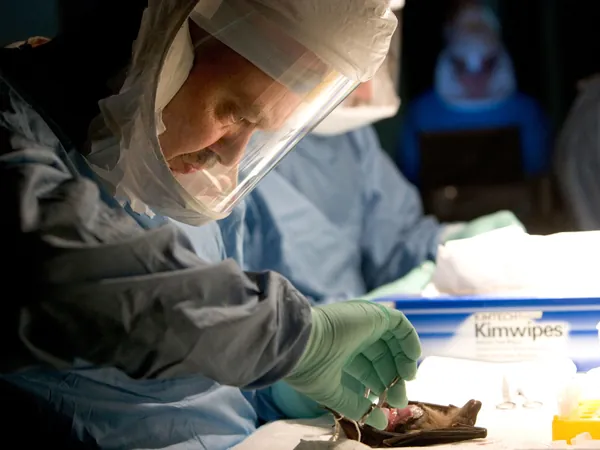
Understanding the Marburg Virus Outbreak: What You Need to Know
2024-10-05
Understanding the Marburg Virus Outbreak: What You Need to Know
Rwanda is currently battling its first outbreak of the highly virulent Marburg virus, first reported in late September. As of Thursday, 11 lives have been tragically lost, and the country's health minister has revealed plans to initiate clinical trials for experimental vaccines and treatments.
Introducing the Marburg Virus
Belonging to the Filoviridae family—just like the notorious Ebola virus—Marburg is known to be even more severe in its effects. This virus causes a type of hemorrhagic fever, which can severely impact the body's blood vessel integrity, leading to internal bleeding and, in many cases, death. Symptoms usually appear within two to 21 days after exposure, and fatal cases often show signs of bleeding from various locations in the body, including vomit, urine, and through the skin.
First discovered in the German town of Marburg in 1967, alongside cases in Serbia, it has a devastatingly high case fatality rate that can range from 24% to 88%. On average, about half of those infected succumb to the disease.
Current Outbreak in Rwanda
As of the latest update, there are 36 confirmed cases of Marburg in Rwanda. Alarmingly, about 70% of these cases are among healthcare workers, raising concerns about potential transmission within medical facilities that lack proper infection control. Authorities are currently monitoring approximately 300 individuals who may have been in contact with confirmed cases.
The source of the outbreak remains unclear, but some infections have previously been linked to contact with Rousettus bats, a species of fruit bat known to harbor the virus. Contrary to initial fears, recent tests have confirmed that two passengers in Germany who feared exposure actually tested negative for the virus.
Global Context and Precautions
This outbreak is part of a troubling trend; over the last few years, there have been several Marburg virus outbreaks in West Africa. For instance, Equatorial Guinea reported 12 deaths out of 17 confirmed cases earlier this year and a similar outbreak was identified in Tanzania.
The current risk assessment from the World Health Organization (WHO) indicates a "very high" risk at the national level, raising alarms not only in Rwanda but regionally and globally.
Vaccine Development Efforts
Currently, no vaccines or treatments are approved for the Marburg virus, but several candidates are in development. Rwanda’s health authorities are racing against time to establish clinical trials. Collaborations involving the International AIDS Vaccine Initiative and other entities are working towards solutions, including trials from Oxford University, known for their work on the AstraZeneca COVID-19 vaccine.
Protecting Yourself
The best way to avoid contracting the Marburg virus is through rigorous hygiene practices and by limiting exposure to individuals exhibiting symptoms. Experts recommend wearing masks in close contact with symptomatic individuals and avoiding sharing personal items like food and utensils.
Despite the challenges, global health experts emphasize the need for improved surveillance and resources in healthcare settings to prevent further outbreaks. “We must take this threat seriously, or we risk losing more lives,” cautioned infectious disease experts.
Why Are Outbreaks Increasing?
There's a concerning trend of increasing Marburg outbreaks, particularly after 2021 when five outbreaks were recorded, compared to only 13 in the previous 50 years. Factors contributing to this rise include increased human-wildlife interaction, chronic health conditions that compromise immunity, and deficiencies in healthcare infrastructure, particularly in lower-resourced areas.
The Marburg virus is a potent reminder of the potential consequences of infectious diseases and the critical need for global cooperation to prevent their spread. As the situation in Rwanda unfolds, the world watches closely, hoping for swift containment and a concerted effort to develop effective treatments.









 Brasil (PT)
Brasil (PT)
 Canada (EN)
Canada (EN)
 Chile (ES)
Chile (ES)
 España (ES)
España (ES)
 France (FR)
France (FR)
 Hong Kong (EN)
Hong Kong (EN)
 Italia (IT)
Italia (IT)
 日本 (JA)
日本 (JA)
 Magyarország (HU)
Magyarország (HU)
 Norge (NO)
Norge (NO)
 Polska (PL)
Polska (PL)
 Schweiz (DE)
Schweiz (DE)
 Singapore (EN)
Singapore (EN)
 Sverige (SV)
Sverige (SV)
 Suomi (FI)
Suomi (FI)
 Türkiye (TR)
Türkiye (TR)